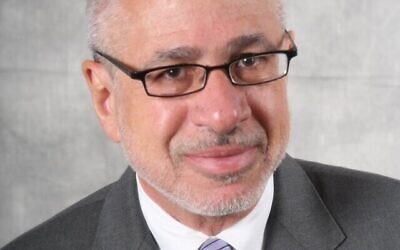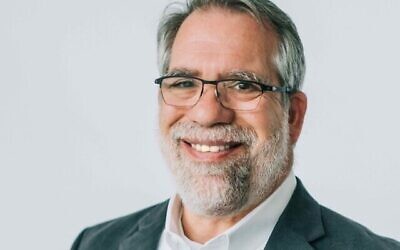Hillel and JF&CS Offer Mental Health Aid
New pilot program provides counseling services to Georgia’s Jewish college students.

Hillels of Georgia has partnered with Jewish Family & Career Services in Dunwoody to offer free psychological counseling services to any Jewish college student in Georgia.
The program called “Be Well With Hillel” comes at a time when psychological counseling services on college campuses around the state have been overwhelmed with requests for services.

According to Hillels of Georgia CEO Elliot Karp, the new service being provided at JF&CS fills a critical need at the eight college campuses the student organization serves.
“This has already been a generation that has exhibited the highest incidences of mental health issues of all sorts, including suicide, more than any other previous generation of college students,” Karp said. “And then when you add in this past year of the pandemic, it only exacerbated an already very challenging situation and environment for college students.”
During the past year many students who were forced to suddenly transition to a learning environment centered on the internet have complained that increasingly they feel isolated and alone.
Emory University told graduating seniors this year to stay home during their final semester, and the school canceled spring break in favor of just three separate days of vacation added to the spring academic calendar.
Although universities in Georgia have supplemented the psychological student health services with third-party providers, students sometimes reportedly have had to wait for as long as a month or more for formal appointments with a mental health professional.
According to a national survey released in February by the nonprofit research organization Healthy Minds Network, almost half of the 36,000 students they surveyed at 36 colleges across the country reported signs of depression, anxiety or both.
More than 80 percent of the students believe it has had a negative impact on their academic performance. That’s the highest number of students to report such an effect since the annual Healthy Minds surveys began in 2007.
The Centers for Disease Control and Prevention uncovered more proof college-age young adults have been struggling emotionally lately. Among those surveyed last year by the CDC, the percentage of respondents who reported having seriously considered suicide in the 30 days prior to the study was significantly higher among those ages 18 to 24.

Dan Arnold, JF&CS director of clinical services, is encouraged by the initial response that the agency has received to the new program, given that there’s often a lag in an individual’s response to a mental health crisis.
“It takes a long time between the time that someone begins to experience stress and then decides that it’s time to take that crucial step of requesting support. And the kids are doing that now. And that’s really exciting because it means that they’re going to get some much-needed support and help.”
The pilot program is supported by a $25,000 grant from the Jewish Federation of Greater Atlanta’s COVID-19 Emergency Response Fund. It’s a limited program that runs only to the end of the school year and covers the costs of adding a single mental health counselor at JF&CS two days a week.
Still, according to Karp, it is one of the first such programs in the country, coming in ahead of a national initiative by the Hillel organization to beef up mental health aid to individual local Hillel programs.
Karp said it has helped to broaden the discussions he’s had with mental health professionals at local educational institutions.
“It’s opened up a whole new avenue of collaboration with them as well,” Karp pointed out, “because one of the things that we’re now discussing with them is how their counseling staff can perhaps be a little bit more attentive to what particular issues Jewish students may have, or at least an awareness of what does being Jewish mean on a college campus.”
Increasingly, he said, Hillel has had to work harder to support its student population so that psychological problems don’t become deeper and need professional help.
“There is the sense of loss and we are cognizant of it. So we have been working very deliberately how to maintain connectivity with students to give them that sense, number one, that someone cares for them; and number two, that they’re part of a community.”
At JF&CS there is a concern that the mental health consequences of the COVID pandemic could have long-term consequences. Even though public health measures and rising vaccination rates are significantly cutting into the time the COVID pandemic affects society, Arnold sees danger ahead.
“The COVID-19 pandemic is going to end, whether it’s vaccination or herd immunity. But I think what is following the COVID-19 pandemic is the shadow pandemic of mental health concerns as a result of this year, plus of anxiety and fear in grief and depression.
- Bob Bahr
- Hillels of Georgia
- Elliot Karp
- Dan Arnold
- Mental Health
- student suicide
- Be Well With Hillel
- Jewish Family & Career Services
- dunwoody
- College Student
- Emory University
- Healthy Minds Network for Research on Adolescent and Young Adult Mental Health
- Centers for Disease Control
- Jewish Federation of Greater Atlanta’s Community Relations Council
- jewish federation of greater atlanta
- CDC Foundation's COVID-19 Emergency Response Fund
- jewish students
- COVID-19
- COVID-19 pandemic
- vaccination
- Herd immunity
- Education
- Local



comments